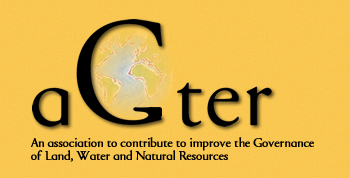|
|
|||||||||||||||
|
|
An article published on the ARC2020 website which analyzes the mechanisms of land concentration in France since the end of the 19th century and the acceleration of the phenomenon over the last decades, to conclude on the need to establish a coherent policy regulating land markets at European level.
It all started in the 1950ies, when the Franco regime decided to develop the Almeria area, a district located in the eastern part of Andalusia, by the sea. In that time this was a practically raw plain area, arid and with a very dry climate, receiving 200 or 300 mm of water per year, close to the sea and it belonged to big landowners. You could only see some scarce and very extensive breeding. So where you now see those intensive greenhouses, in the 50ies, there was a practically uninhabited territory, where only some sheep herds roamed. However this territory had important water tables. Therefore the Franco regime, whose agricultural policy was widely based on hydraulic development -through dams or usage of ground waters- decided to launch an irrigation project in the area. (...)
The Netherlands possesses the most efficient agricultural sector in the European Union: with only 1.6% of its active population, this small country produces 8% of the EU’s agricultural output, and rivals with France at the international level for second place behind the USA among agro-exporting countries.
The inception of the modern agricultural policy of capitalist European countries is found in mid-18th century Denmark under the aegis of an absolute monarchy and supported by bourgeois merchants. Danish agriculture at this time was dominated by feudal landowners who ran an extremely oppressive system of serfdom. The rudimentary method of traditional collective crop rotation over a three year cycle, heavy labour, and burdensome taxes kept the peasants in a state of misery. "Upon the (...) |
||||||||||||||
AGTER. Addres: 45 bis, avenue de la Belle Gabrielle, 94736 NOGENT SUR MARNE CEDEX, FRANCE
Telephone: +33(0)1 43 94 72 59 / +33(0)1 43 94 72 96
E-mail: agter@agter.org



